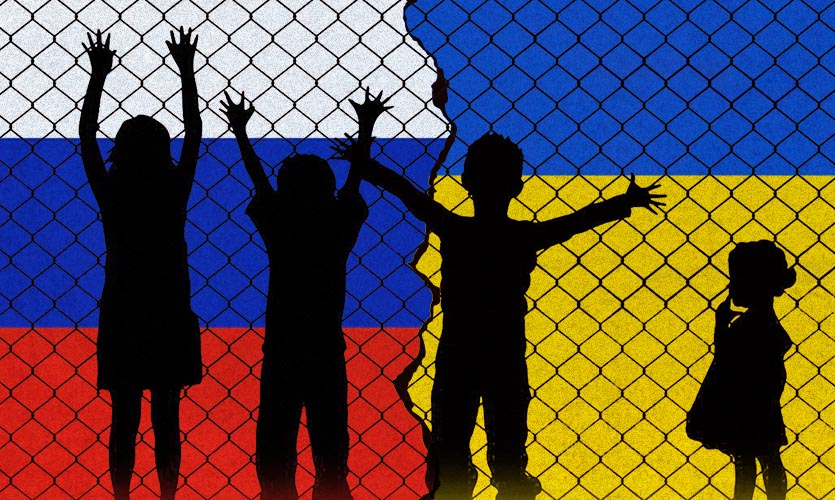After almost a year of the Russian war in Ukraine, France is in talks to convince India to change its stance, urging the Narendra Modi government to support a UN resolution that calls for the cessation of hostilities. The resolution is scheduled to be tabled at the United Nations General Assembly (UNGA) this week. The Indian government has so far refused to vote for any resolution critical of the war, either at the UNGA or at the UN Security Council since the country joined last year.
All eyes will be on Wednesday’s emergency session of the UNGA as 193 countries vote to hold talks between Russia and Ukraine, and to establish “lasting peace”. There had been 143 votes in the UNGA, in October 2022, condemning the annexation of Ukrainian territory by Russia. The resolution was opposed by five countries, including Russia. India was one of the 35 countries that abstained from voting.
“We know that India is not very likely to join one side or another,” said French diplomats in response to a question from the Hindu, adding that they were in contact with “political leaders” of India and had circulated the draft of the resolution, sponsored by several countries, to all UNGA members. Sources concede, however, that India’s position is “most likely” to be another abstention.
Reportedly, sources also told Reuters that France and the European Union (EU) are hoping that India will “take advantage of its links” with the Russian government to convince Putin to end the war in Ukraine. India’s National Security Adviser Ajit Doval visited Washington, London, and Moscow in short succession over the past several weeks, meeting with the senior officials in each city, including Putin. The government, however, has not released any information on the specifics of their discussions regarding the crisis, with an official statement merely stating that Doval and Putin had “wide-ranging discussions on bilateral and regional issues”. The UNGA vote will take place right before German Chancellor Olaf Scholz’s visit to Delhi on Saturday.
The sources said that the tenth wave of sanctions by the EU, which was announced last week and will go into effect on Friday to mark the war’s one-year anniversary, will be the broadest yet. A declaration by the EU states that third-nation entities would be added for the first time, including penalties against Iran for supplying Russia with drones. They said that EU authorities are examining the possibility of placing limits on nations that are “illegally” trying to evade the EU’s sanctions.
“We are not expecting all countries to join sanctions,” said the sources when asked about the refusal by India and other Asian countries to cut down their oil purchases from Russia or to join EU sanctions. “Some countries are also dependent on Russia, for certain aspects of their economy and for their supplies. What we are trying to look at in the EU is to put sanctions on those people and countries who are illegally subverting the sanctions,” said the sources.
Putin spoke to Russian MPs about the issue on Tuesday, accusing the United States and Europe of seeking to enlist additional nations in the fight and convert it into a struggle with Russia.
“They intend to translate the local conflict into a global confrontation… We understand it this way and will react accordingly,” said Putin to lawmakers in Moscow.
Earlier this week, Putin said that he is suspending his nation’s participation in the New START nuclear weapons reduction deal with the US, putting the final agreement that governs the two greatest nuclear arsenals in the world in jeopardy. The pact places restrictions on how many nuclear missiles with deployed intercontinental ranges the US and Russia may possess. It was last renewed in early 2021, for a period of five years, indicating that talks between the two parties may soon start on a new weapons control deal.
Both the United States and Russia are allowed to visit each other’s nuclear weapons facilities under the major nuclear arms control treaty, yet inspections have been suspended since 2020 because of the COVID-19 pandemic. Russia may not entirely want to abandon the agreement, but it does seem to be formalising its existing stance. US officials have been displeased with Russia’s lack of compliance with the pact for months.
The decision to halt participation in the treaty, according to Russia’s Foreign Ministry, is “reversible”, as per what it said in a lengthy statement posted on its website. The ministry added, “Washington must show political will, make conscientious efforts for a general de-escalation and create conditions for the resumption of the Treaty’s full functioning and, accordingly, comprehensively ensure its viability.”
Read more: US Report Claims Russia Has Detained At Least 6,000 Ukrainian Children For Re-education










